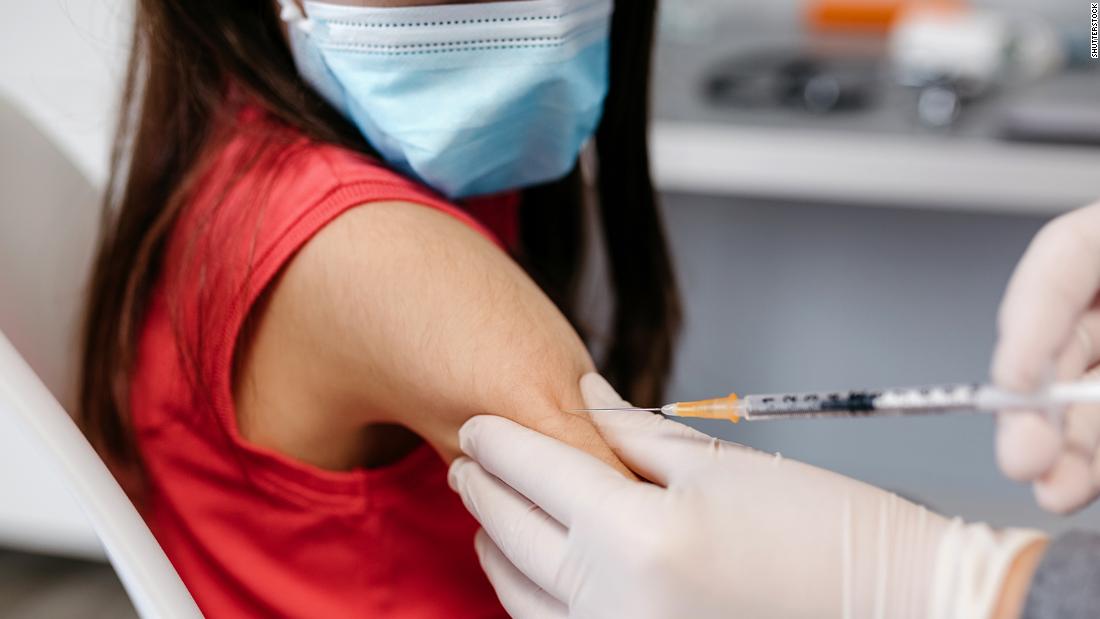A vocation that confronted the fear of covid-19 3:35
(CNN) -
As many people postpone necessary medical care due to the pandemic, medical professionals worry that their patients will become ill or even die from other causes.
25% of Americans said they or someone in their household had delayed medical care in the past month due to the coronavirus, according to a December study by the Kaiser Family Foundation.
An earlier report from the U.S. Centers for Disease Control and Prevention (CDC) found that 41% of Americans delayed medical care, including 12% who postponed care for urgency or emergency.
We spoke with Dr. Leana Wen, CNN Medical Analyst, Emergency Physician, and Visiting Professor at the George Washington University Milken Institute School of Public Health, to get her advice on which appointments can be postponed and which cannot, and what precautions should be taken by people when they go to their doctor.
CNN: Why do some people put off their medical care?
This is a problem?
Dr. Leana Wen: I
certainly understand why some people have postponed their medical appointments.
In many parts of the country and around the world, there are very high levels of spread of the new coronavirus.
People may be concerned about contracting coronavirus when they go out.
Additionally, some hospitals overwhelmed by COVID-19 patients have postponed elective surgeries and some doctors have even canceled routine appointments.
Patients may not always know when the rise in the new coronavirus has ended and their appointments can resume.
This could be a problem.
I am concerned that many patients are left without the care they need for their current medical problems, so it is important for people to reach out to their doctors.
Many conditions require ongoing monitoring, such as high blood pressure, diabetes, and heart disease.
If not monitored so closely, they could get worse and lead to worse problems that could have been prevented.
It is not good for children to fall behind on their immunization schedules.
Those who do not undergo cancer screenings could end up with a later diagnosis and worse results.
It is important to keep up with routine medical appointments.
advertising
Don't ignore this headline: the pandemic is getting worse, what happens next is up to you
Dying alone, the darkest face of the pandemic 4:55
CNN: How can people decide if they can postpone a date?
Wen:
Here are some things to consider.
Is there an alternative to going in person?
Many doctor's offices offer remote care as an option.
You may be able to talk to your doctor without having to physically go to the office.
Much could be done virtually.
For example, they can check their blood pressure or blood sugar at home and tell their doctor what they find, and they can adjust their medications or other treatments over the phone or through a virtual appointment.
Many mental health visits can be done entirely through remote care.
If there are things you have to do in person, see if you can combine visits.
You may get a breast exam, blood tests, and a pneumonia shot.
You can do them all at the same time.
Lower your overall risk if you can have fewer visits.
You can live in a part of the world that is having a particularly difficult time with the coronavirus.
If that's the case, talk to your doctor about what's essential to do now versus the important things that could wait a couple of months.
For each person, that could be different.
Someone who needs a lot of tests for a heart condition may need to do so now, but perhaps that person could wait for a colonoscopy that could be done when infections are down.
Another person may have a history of colon cancer, and the colonoscopy should not be delayed.
It is a good idea to start these discussions with your doctor now.
CNN: Are there medical visits or procedures that shouldn't be postponed?
Wen:
This will depend on each individual and their own medical conditions, as well as their tolerance for risk.
In general, I would say that childhood vaccinations and other routine vaccinations like the flu shot should not be put off.
Neither should treatment for conditions that could be life-threatening be postponed.
Nor can I stress this enough: Don't delay emergency care.
If you have chest pain, shortness of breath, sudden weakness in the arms or legs, and other similar symptoms, you should go to the emergency room at your local hospital.
If you normally would have gone to the ER if it weren't for the coronavirus, go to the ER now.
Hospital emergency rooms have triage protocols and also infection control protocols.
Don't hesitate to come if you need emergency care.
It would be tragic for people to avoid going to emergency rooms because they are afraid of contracting coronavirus, only to die at home.
Also remember that Covid-19 causes more serious illness in people with underlying medical conditions.
Treating and optimizing those conditions should be a priority in and of themselves, but treating them could not predispose you to even more serious effects of COVID-19.
That's another reason to keep seeking medical attention even with a large amount of coronavirus.
Specialist says that we must "revalue health" in the midst of the pandemic
New record for hospitalizations in the US due to covid-19 0:27
CNN: What precautions should people take if they go to their doctors' office?
Wen
: You should ask before you go what procedures the doctor's office has.
Many places have multiple protocols that require masks and physical distancing;
require advance symptom checks;
do not allow other visitors;
and reinforce physical distancing.
Ask what happens when you walk in.
How does waiting work?
Ideally, the time in the waiting area while you are indoors with other people will be as short as possible.
Some doctors will ask you to wait in your car or outside until they are ready to treat you, and then they will rush you to an exam room.
Others have waiting rooms that have reinforced physical distancing and good ventilation.
Make sure you wear a good quality mask at all times, at least a three-layer surgical mask or an N95 or KN95 mask.
Bring your own water, but try not to remove your mask unless absolutely necessary.
Offices should have plenty of hand sanitizer, but bring your own and use it after touching frequently used surfaces, such as doorknobs.
Also ask if the visit in person is absolutely necessary.
Can you do a lot on the phone, including talking to the doctor?
Perhaps all you have to do when you show up is a blood draw or procedure.
Can you register in advance to minimize in-person contact?
CNN: What do you say to people who prefer to wait until they get vaccinated before going to the doctor?
Wen:
This could be a reasonable decision, depending on the reason you go to the doctor and how long you have to wait to get vaccinated.
Let's say you don't have anything urgent right now, and you can get almost everything fixed through remote medical care.
Perhaps all you need is a routine dental cleaning and your annual cholesterol check.
Let's also say that you are an essential worker, you are over 65 years old and you will probably be able to receive the vaccine in the next few months.
If that's the case, you should talk to your doctor, but it might make sense to get vaccinated first and then keep your routine appointments.
If you're not likely to get vaccinated until late spring or early summer, it's a bit long to put off your regular appointments.
It's probably best to go now and consolidate all in-person tests and procedures in one visit.
In general, if you have ongoing medical conditions that require an in-person visit, and certainly if you have an urgent problem, you should go to the doctor.
Follow all precautions to reduce the risk.
Coronavirus is one of the reasons why people could get sick and suffer from health problems, but they must also take care of their health in all other aspects.
Covid-19 Health Information Pandemic















